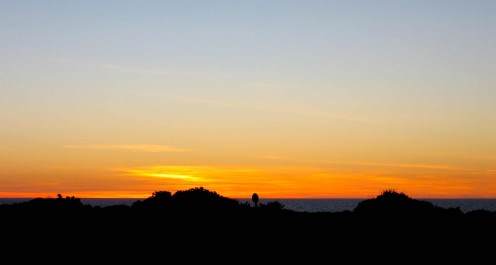There are people alive today that may very well have grown up in homes without electricity, without lights and heating the home depended on how much wood you could cut or how much coal you could shovel.
Survival was hard work, but this was normal for the times, and it was called a good living by many. Granted those less ambitious may have eaten a little less but if you wanted to eat more or be warmer in the winter, you worked harder.
Your actions dictated how you lived or survived day to day. You knew what not having enough wood cut and stacked meant for the family. Produce and meats had to be canned and cured to see the family thru the winter. If anyone in the family slacked off the entire family suffered.
Each family member had a role and each fulfilled his or her role. No one had any questions about what needed to be done. If someone failed, there may have been less to eat that day as a result.
People had acreage and even those that did not consider themselves ranchers or farmers usually had a few chickens and a dairy cow or two and always had a garden outside the back door. Everyone knew how to can foods and cure meats. Even though many lived in rural areas, they knew their neighbors, they know how to reach a doctor for a sick child and you made yourself available to help others raise a barn or dig a well. When a so-called polar vortex visited the area, you simply referred to it as a cold snap and added a few more chunks to the fire.
Do You Understand What Going off Grid Really Means
Humans are social creatures so to those that believe that going off grid is the answer may find it is not the right answer. While many long for solitude once they have it, they cannot abide it. You will find in many cases there are things you simply cannot do or want to do by yourself. You will find yourself staring out the window looking for someone to come wandering up the lane because you as a human need to interact with others.
Those that have never gone without electricity and all that it means would find it difficult if not impossible to live without it. Therefore, going off grid for some is simply finding an alternative to the local power grid. You are not living without electricity you are simply changing sources.
This is great and works for some until the solar panels are destroyed or damaged or they need repairs or the battery backups begin leaking potassium hydroxide. Your hydro generator works fine until a community of survivors’ upstream dam up the river for their community water supply. Wind turbines are also ideal for generating electricity until the turbine stops spinning or a blade snaps off. To ensure you can truly survive on your own off grid you will have to know  how to live without electricity and without all the gadgets associated with electricity.
how to live without electricity and without all the gadgets associated with electricity.
Most of you know what bugging-out means and if you live in a metropolitan area that has come under attack you will have to evacuate to save your life whether you have any place to go or not. There could be poison gas, radioactive fallout, raging fires or any number of things that will drive you out of the city.
At first, escape is all you are concerned with, and then once clear of the danger zone you have decisions to make. Do you simply wander around with your bug-out bag or do you find others that have escaped and begin planning as a group. Unless you have a secure place to go to then you will need others. In essence, you will need to form a small community of survivors almost immediately. You need the talents of others and they may need yours. Collective ideas will be important.
Not very many people who live in the city will have a cabin to go to that is off grid and has its own power generating systems. There may be cabins scattered about in rural areas that are abandoned and rundown but they will not be equipped with solar panels or hydro stations so once again you are back to trying to survive without electricity and you will not be the only one searching for shelter. People will go to where there are other people. There is simply no way to avoid this, once a disaster strikes.
Once you have gathered a few people around you then you have to develop a plan for long-term survival. Identify skills of those in the group and assign tasks such as shelter building and repair, food procurement, medical care and so on.
Life after the Lights Go Out
A significant amount of people will not survive the crisis or the days after. Some survivors will wander off in search of utopia, convinced there is electricity and hot showers somewhere else. Those that stay put however and work as a community will likely survive in the days after and will learn to survive without electricity. Everyone will have to contribute to the community and function just as large families did before there where lights. Everyone will have a job to do and working hard means more for everyone.
 Source: prepforshtf.com
Source: prepforshtf.com
